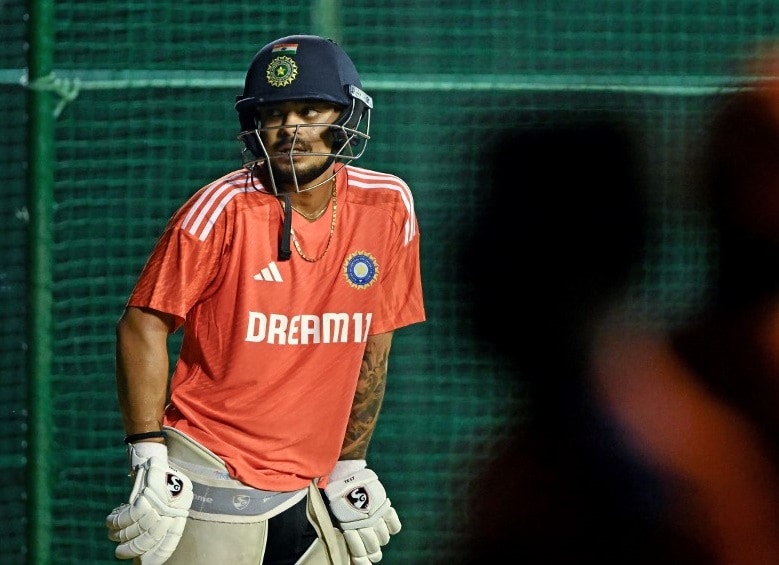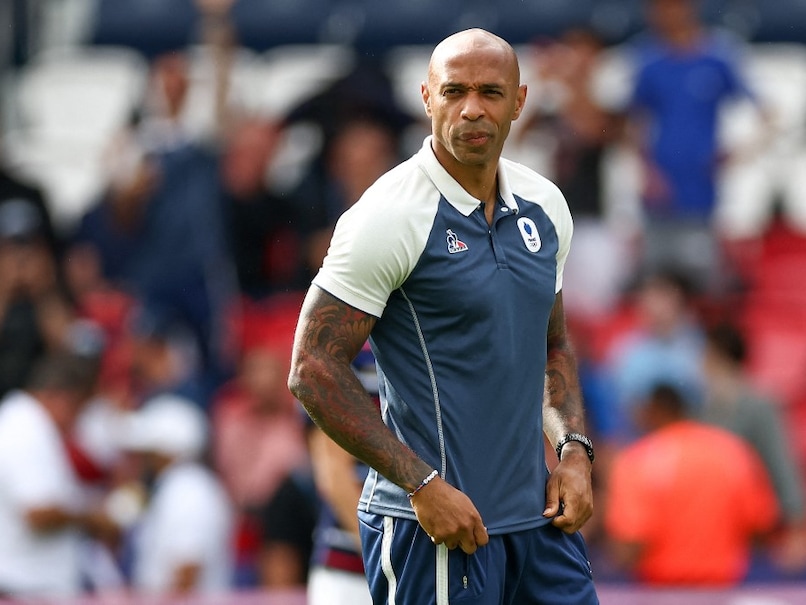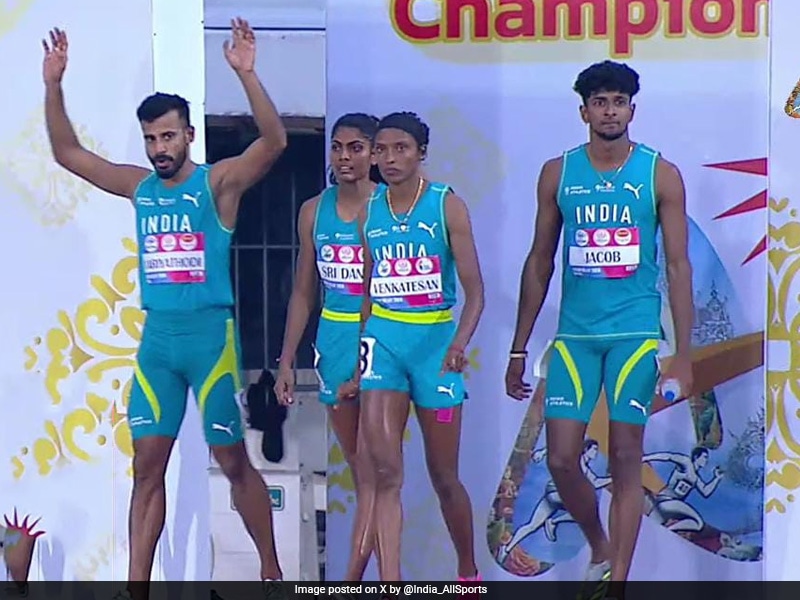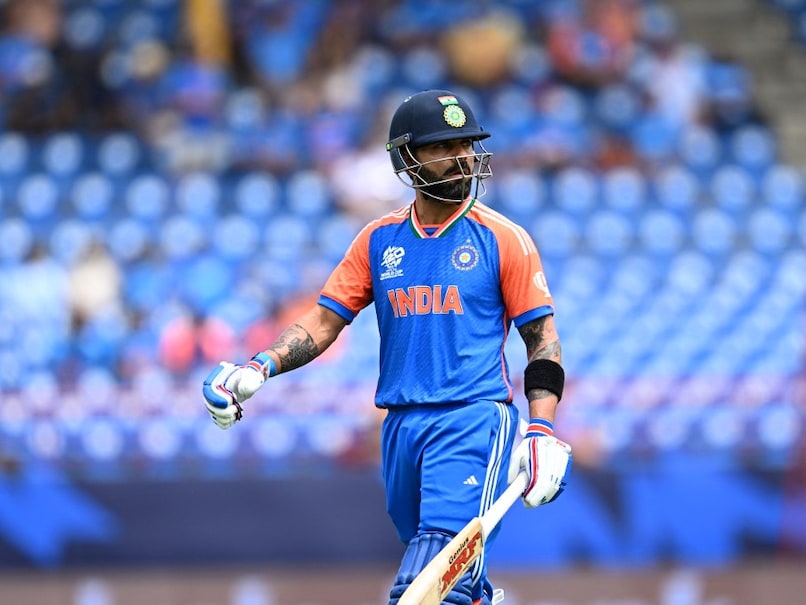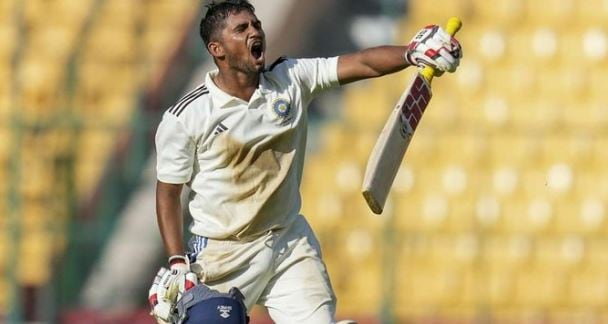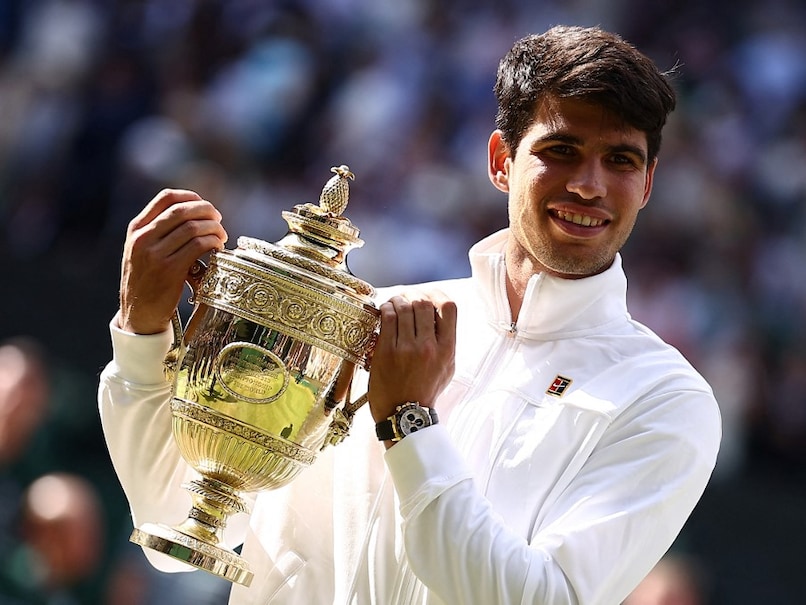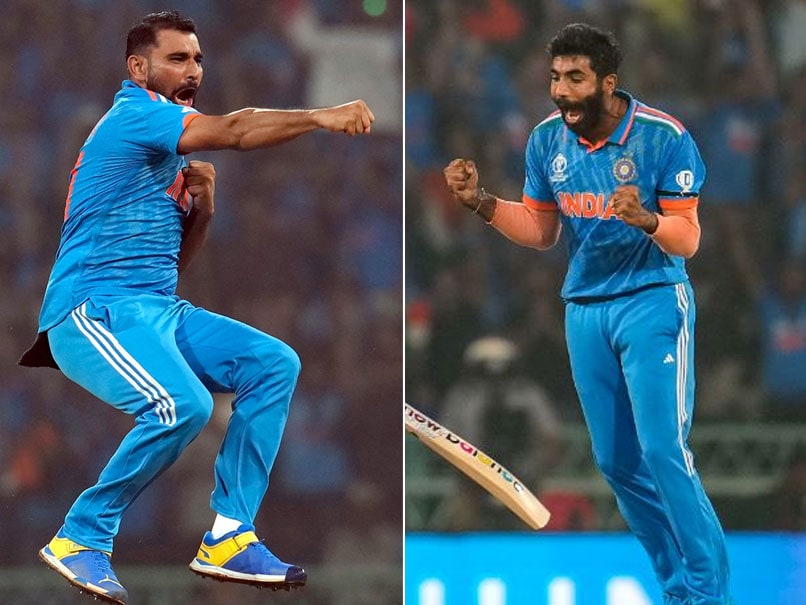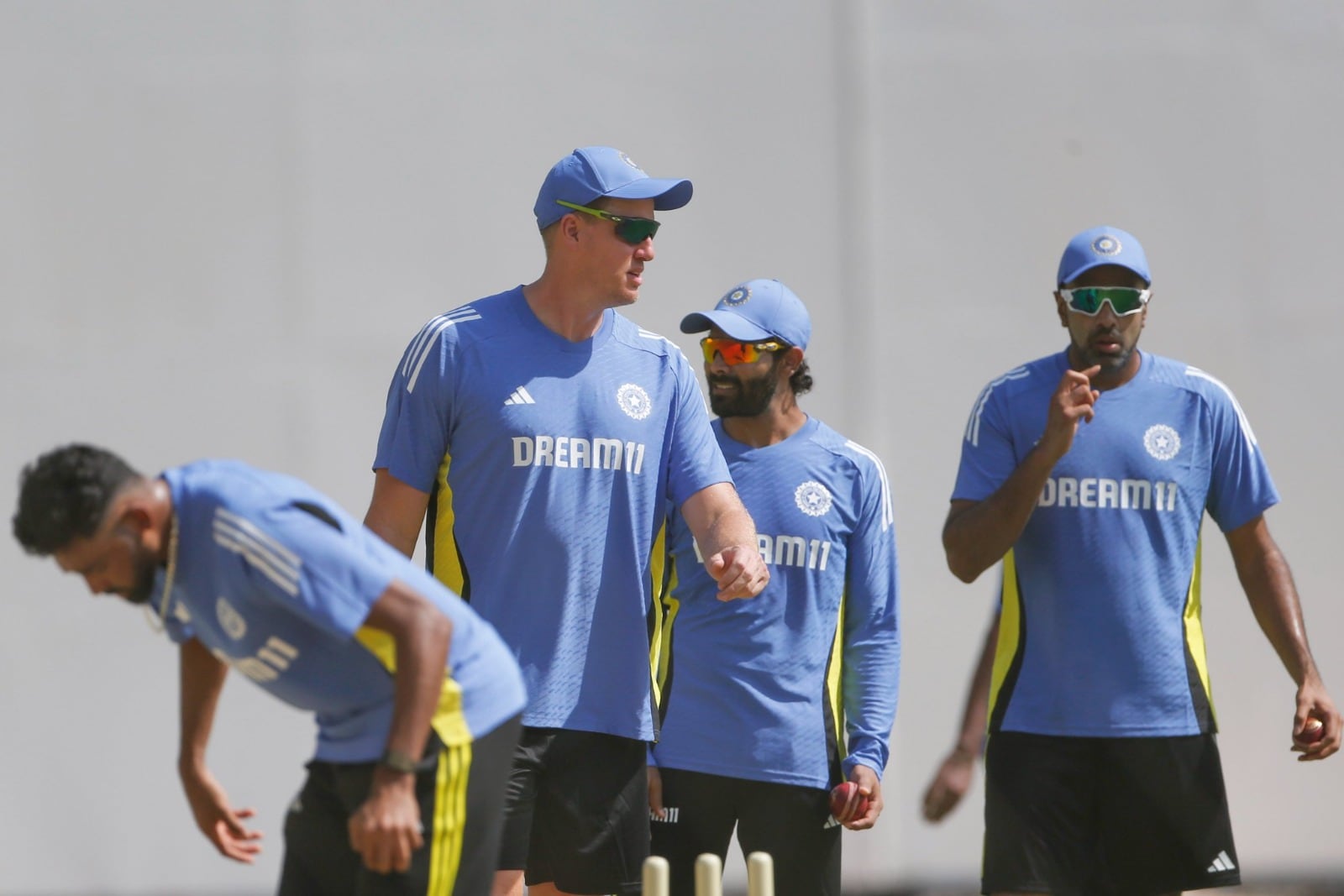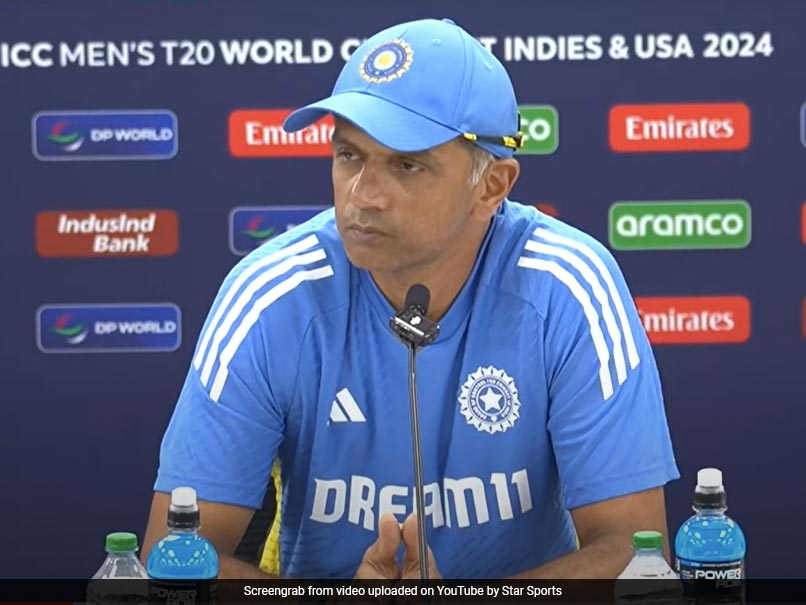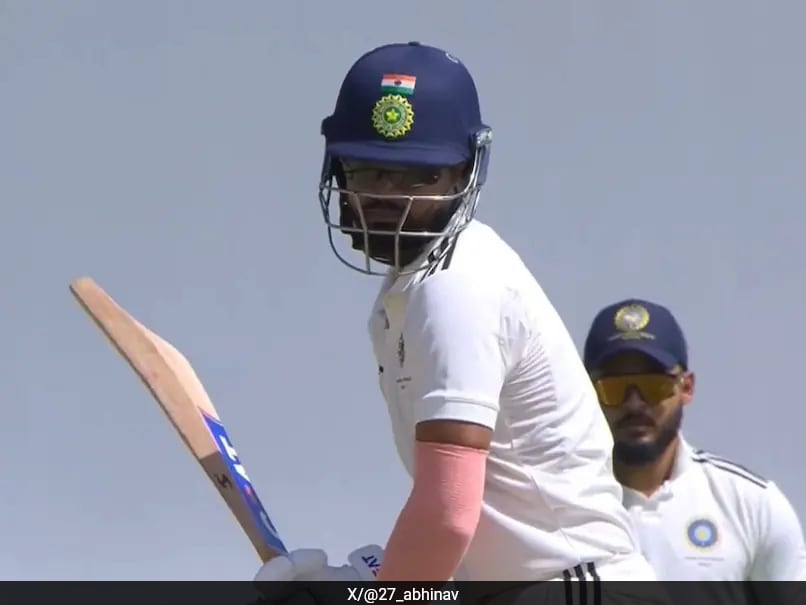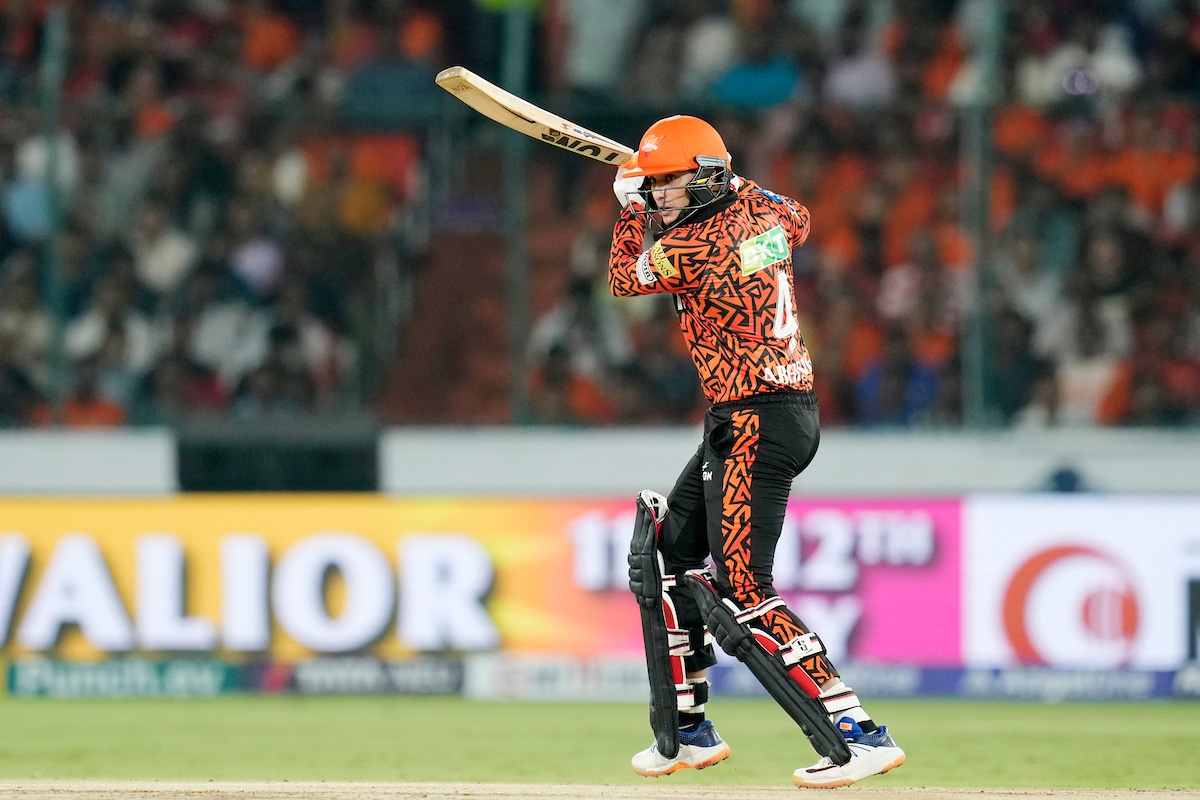Mrs. Birla, it’s only been a few days since the Paris Olympics concluded and the Indian contingent returned with a total of six medals. But why does a country with a population of over 1.4 billion people get just six medals in Olympic Games? Is it just a lack of skill or does mentality also have a role to play?
Definitely, mentality has a huge role to play. And, you know, everybody, of course, puts in a lot of hard work so that you’re able to build your competency or skill. So there is a lot of hard work that goes into it.
But the mentality comes into the picture multiple times. One is, of course, the entire bit when you’re training, because even during the whole process of training, which in itself is very rigorous, needs a lot of hard work, dedication, consistency, and discipline, which in itself is very tough.
So to sustain that level of training, to train for something like the Olympics, it needs a very strong mindset. And then, of course, the mentality comes into play when you’re actually on the court, in the field, and actually playing the sport. And I do believe that, you know, after a certain point, when you’re competing at the level of the Olympics, everybody who is there has trained, is very, very competent, has a huge high level of skill, is very talented, is very hardworking, and everybody is at that one level.
But while you’re in the game and while you’re competing, then it becomes a mind game. And then the mentality really kicks in because then to make it, make yourself a winner, to get that winning stroke, then that is, that turn is a very important one. And that’s where mentality, the strength of the mind really comes in, which is why sports psychology, which is a branch of sports science that focuses on understanding and optimizing the mental and emotional factors comes into play because that really impacts athletic performance.
And like I said, it is during the training, which is very important, and even more important is at the time when actually they’re competing because competing pressure, the pressure of the sport, that in itself, the competitive pressure during the competition itself is very high. So in order to address those mental challenges so that athletes can actually improve their performance and stay resilient under pressure during training and during the competition itself, sports psychology is very important because it really helps them achieve their goals.
Sports psychology is an area that can really enhance the performance of the athlete, off the field and on the field. And giving our athletes that edge, whether they’re elite athletes or even athletes who are really striving very hard to reach the top, if we’re able to give them that training and give them that exposure, I think it will really help and go a long way.
India is still considered a cricketing nation more than a sporting nation. How can sports psychology could play a role in fast-tracking the pace with which other sports are growing in India?
I feel, it’s always going to be multifactorial and there’s a reason why other sports don’t gather as much momentum as cricket is at this point in time. There are the sports that are really gathering momentum, badminton, for example, you have boxing, you have wrestling, rifle shooting.
We have seen positive results in all these. But I think as a nation, we need to really start sports at a much younger age than we do. And I think, therefore, it becomes very important to start sport right from the time when schooling starts and to give it that importance right from that level.
What kind of challenges do you see sportspersons facing? And how has sports psychology come into the picture to help them resolve their concerns?
We are at the threshold of launching our sports psychology vertical at Mpower. Mpower already has been working with athletes, but as a more focused, concerted, and specialised area, so that we’re able to offer those specialized services to our athletes, we’re now launching the sports vertical, which is called AMP, Athlete Mind Performance, because I think the mind is clearly the game changer, which can really enhance and make that crucial difference on the field. My son was into cricket, and I think from our experience of preparing him while he was a cricketer and playing at the Ranji level, I think that experience really made me realize that we really need to go beyond just the physical training, because the mind training, the mind conditioning really enables performance and really, like I said, is the game changer.
It gives them the cutting edge. And this high intensity of training and competition obviously puts a lot of pressure on young athletes. Therefore very important to give them ways and means of coping with that significant stress, which one is in any case going through, and then competing in that level really adds substantially to that level of stress.
So it’s very important to give them that conditioning, to give them that mental health training, to give them that support.
At the recently concluded Paris Olympic Games, India’s badminton coach Prakash Padukone was quite unhappy with the way the badminton contingent returned with zero medals from the Olympic Games. If you could explain how sports psychologists come into the picture in these specific scenarios and help players handle those big-stage pressure situations.
Sports psychology is a branch of sports science and psychology that focuses on actually understanding and therefore optimising the mental and emotional factors that affect athletic performance.
It can also be termed as a preventive science because if you’re able to give them that conditioning where athletes can actually build on the essential mental health training skills, it therefore also becomes preventive and helps them to be able to deal with the stressors better. And then which can be on the field and off the field and therefore not get into situations where they’re just not able to cope with the sport and the pressures that come along with it. It also helps them perform and manage their stresses on the field.
It gives them the right tools and mechanisms and the tools could be different. It could be visualizing, it could be how to maintain a positive mindset. It also helps them, gives them other techniques which can then help them get successful outcomes, relaxation techniques and different forms of strategies which can help the athletes to definitely mental health conditioning is extremely important for athletes because on the whole, it’ll definitely help improve their performance and there’s enough and more statistics that tell us that, that prove that to us.
It also helps them stay resilient under pressure because obviously there is a lot of pressure that comes with sport and then you’ve got the whole world also watching you which also adds to the pressure and how to remain resilient under those circumstances. I think if we’re able to give them that sort of training to the athletes, I think it can really enhance their performance.
Can you shed some light on how the sporting ecosystems in India and abroad work sports psychology point of view?
I think in the Western countries, a lot of times, and especially for the elite athletes and even at a much earlier level, they’re able to integrate mental health and performance coaching into the training system itself for the junior athletes.
Which is what even we want to do at AMP. We want to integrate mental health and performance right from the start so that it becomes a way of training right from the beginning. In India, a lot of times, because we do not focus on the mental health aspect of it and the mental coaching, the mental conditioning, our focus is more on the physical side of it on how we build the skillset. How do we build competency on the physical side? And therefore, the mental side is forgotten.
I think if we’re able to integrate the two and give enough importance to the mental coaching as well while training, and we do that right from the beginning with junior athletes, I think that will help also turn the tables for us. Because right from the beginning, we’re helping them with coping strategies, we’re helping them with how do you deal with pressure? How do you deal with competition? Just the way we’re training them for the physical aspect of it. If we give them this training as well, this conditioning, and I think that’s where the West I think also does better because they already have that part of it in place.
They already have the mental coaching in place. They’re already teaching them how to deal with the stresses, the pressures, the competitive pressures, which I think is lacking. So that is one aspect.
The other aspect, I think it’s also very important to educate the coaches right at the grassroots level because I think the coaches also don’t have that experience. And they don’t have that exposure to the importance of mental health. So the coaches also are only training and only focusing on the physical side of it.
But if the coaches are educated and they are also trained to recognize signs of mental fatigue, they of be able to provide basic support. And then if they know when should they be referring the athletes to mental health professionals, I think that kind of awareness and that kind of mental health literacy that can be given to the coaches, I think that will also help tremendously because, at the end of the day, the athlete is dealing with the coach every single day. I mean, that’s his first point of contact, right? So the coaches are also educated about the importance of mental health, not only in their training, of course, that is very important.
So if they’re educated about how important and to integrate mental health into their performance, that is an added benefit. And then also to let them to so that they can become their first aider. And if they are able to identify signs of mental fatigue, that will also really help the athletes because then timely help is provided and the athlete is able to take time off if he needs it or learn the right coping strategies, right coping mechanisms, which will then again help him in his performance towards the final spot, his final goal.
Indian cricketer Ishaan Kishan sought a break from cricket due to mental fatigue last year. This was during India’s tour of South Africa. His return to the Indian team has since become quite difficult considering the competition. And of course, there are other factors as well. Ishan wanted a longer break but was advised to resume playing domestic cricket if he was to be considered for national selection. Even at this stage, when a national cricketer wants to break away from the game for a little while, his decisions are not entirely welcomed. Then, how do we make the entire ecosystem a better one, a more accepting one when it comes to players taking mental breaks for their mental well-being?
From a player care perspective, it’s really important to understand that mental health and well-being are a very crucial part of an athlete’s overall performance. And long-term success. So just as, you know, for example, if an athlete has hurt himself physically, right? People by and large, the public, the coaches, and you yourself, you’re okay taking a break because you need surgery, you need to rest it, you have a tear, and so on and so forth, right? But what happens is that when the player is mentally fatigued, for example, or needs a break, what do you mean by needing a break? This means obviously he’s reached that level of fatigue where he’s just not able to function. So if physically, if his muscles have reached a breakpoint and they’ve actually got injured, you know, we as a community and society and people are okay saying that, okay, he needed a break and it was okay.
But if the same thing happens to his mind, we’re just so unforgiving. And the reason for that is that people at large do not understand the importance of mental health, the importance that well-being is extremely crucial to the overall performance. We are able to create awareness about it.
And that is what we want to do. We have been doing this at Empower and specifically more now at AMP. We want to do that.
It’s about creating awareness. You need to make people aware that mental health, the mental makeup of the person is extremely important, if not more than physical health. So the person is mentally not feeling fit, how are we expecting the person to perform at that level? And how is he going to get the long-term success that he wants? So it’s not only about physical recovery, it’s about an overall mental fatigue that needs to be addressed.
And I think people need to understand that. And that is only going to come by creating more awareness about it, by talking more about it, by spreading it around. And that’s what we’re trying to do is enhance the literacy around it and help people understand that the mental makeup of a person, the mental health of a person is extremely important to the overall performance.
I mean, an athlete like Ishan, for example, and many other such athletes who’ve taken time off, I’m sure they’re not wanting to do it. Because if you’ve worked so hard to reach a particular level, physically worked so hard, and mentally worked hard, it’s a lot of mental grit and determination that gets you there, right? After having worked so hard if they want to take a break, they’re not enjoying it, right? They’re obviously doing it because they’ve reached that level where they just cannot go on anymore. So they’re not doing it out of their own whim in that sense.
Sometimes you need to take those gaps. You need to take those breaks, you know, in order to come back even stronger, even better. And, you know, with even a far greater long-term success plan in mind.
So it’s very important to support the athlete in this journey and recognize that these breaks are very, very important and usual and in fact beneficial to their personal health as well as their performance. And they both have to go together. And that’s what sports psychology is about, right? About how you integrate your mental performance as well as your physical performance.
I would also like to share another example where Australian cricketer Glenn Maxwell in 2019, he decided to take a break like Ishan Kishan did due to mental fatigue. And his decision was welcomed by the Australian board. They even released a statement backing him
Yes, absolutely. I think we need to create a better ecosystem for sports people. And I think that’s going to really go a long way. So, for example, when we started Empower eight years back, the conversation around mental health itself was almost non-existent, right? And now we’ve been able to move the needle. People are talking about it.
It’s definitely got far more mainstream and main-stage attention. So I’m hoping and I do know that even with sports psychology and understanding the importance of mental health and being able to integrate that with your physical performance, I think and I’m sure that we will see a change there as well. And to create any change, to bring about any kind of cultural paradigm shift, it does take time.
And with India, mental health is in any case a huge taboo. It has its roots in the cultural beliefs also of the nation. And, you know, generally, anything to do with mental health is considered a personal failing.
So, you know, we have definitely taken positive steps towards changing that mindset. And I’m very confident that if more and more sporting organizations also are able to build a strong support system, are able to build a strong ecosystem, if, you know, more athletes are able to talk about it, I think we will be able to get more eyeballs towards it. We will definitely be able to create that shift and come to a time like Australia where, you know, we will be more supportive of our athletes when they want to take a break and encourage them to do that so that they come back with a far more, you know, stronger sense of vigor and like competitive spirit.
What role do players play in this entire process?
I am really glad you’re raising this point because, you know, there are always three stakeholders in this entire ecosystem, the athlete themselves, the athlete herself or himself, the coach or the teacher, and then the parent. So it is a tri-part and all three have to be equally, have to be equal stakeholders in this journey, particularly for junior athletes, because the parents do play an integral part. We need to also educate the parents about it.
We do have workshops for parents. In fact, very recently, we had one at the MSLTA, the Maharashtra State Law Association, and we actually did workshops with the parents as well because they also need to understand the importance of mental health. They need to understand the integration of mental health performance with their physical performance.
They need to understand that, you know, if the child is going through a burnout or mental stress or fatigue, the child will, the junior athlete will want to take some time off and that’s okay. You know, as long as, you know, you’re working towards the final goal, you know, a little bit of bumps along the way is part of the journey, and taking that time off is okay. So I think if the parents also understand that, it really becomes important because very often, the parents are also pushing the children a lot.
So the athlete, the child is dealing with his own, her own pressures of wanting to do better, compete, you know, so on and so forth. And then you have the coach also putting pressure, the parents also putting pressure. So there’s just too much pressure on the junior athlete.
And, you know, so the parents also have to learn to be more supportive and, you know, they have to understand. And that’s what our endeavour is also, to reach out to the parents, to make them understand the importance of it, to make them understand how the two need to be integrated, to make them understand how it’s important to give them the right coping strategies and mechanisms. And therefore, how sports psychology is very, very important and an integral part of their overall performance.
Just the way, you know, they are training day in and day out to reach the goal. They have to get backed up and they have to have that support coming in from a sports psychologist as well. It’s imperative and very, very crucial for their overall performance.
Topics mentioned in this article





